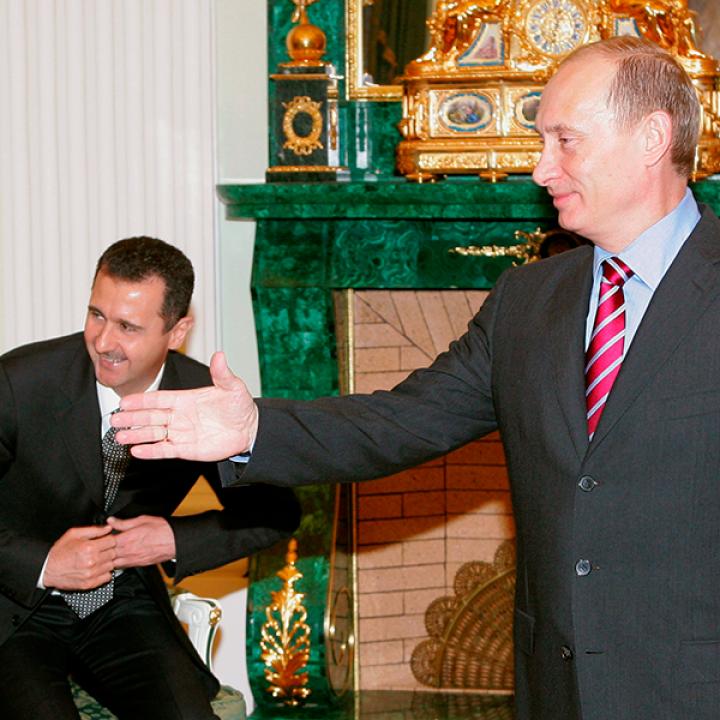

The recent Russian "withdrawal" from Syria reflects not a parting of ways with Assad but rather frustration with the regime's poor performance on the battlefield and at the negotiating table.
Lately, it seems as if Moscow has finally decided to listen to Washington when it comes to Syria. First, on March 15, Russian President Vladimir Putin announced that he would "withdraw" his forces from Syria, apparently in response to U.S. President Barack Obama's lectures on staying out of the Syrian "quagmire." Ten days later, while hosting U.S. Secretary of State John Kerry in Moscow, Putin made a rare expression of praise for Obama's "political leadership" on Syria. By the day's end, Kerry and Russian Foreign Minister Sergey Lavrov announced no fewer than five areas of supposed cooperation on Syria: Moscow and Washington would "enhance" and "reinforce" the February 27 cease-fire agreement by ending the use of "indiscriminate weapons," expanding humanitarian access to Syria, compelling Syrian President Bashar al-Assad to release political prisoners and detainees, establishing a framework for a political transition, and writing a draft constitution by August. Lavrov even spoke of the creation of a "transitory governing body" in Syria -- an echo of the "transitional governing body" outlined in the Geneva Communique of 2012 -- Washington's bottom line for a settlement in Syria.
But a deeper look reveals that Washington is moving closer to Moscow's position on Syria, including on drafting a constitution that would allow Assad to remain in power during a "transition." And if Putin has his way -- either at the negotiating table or on the battlefield -- Assad will stay in power for years to come...
Foreign Affairs



